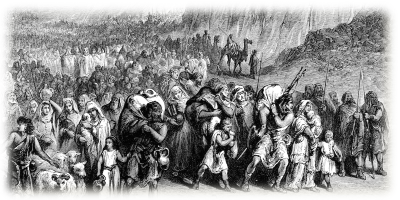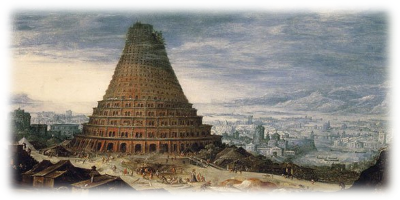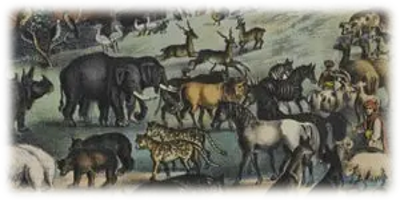Perhaps the most difficult passage in the entire Passover story of Scripture occurs in Exodus 12:17. Here, the Israelites, that tiny band of universal metaphors, are set to leave their oppressive site of slavery and degradation "b'eZTeM haYom haZeH", in -- literally translated -- "the BONE of the day". The word "eTZeM" means bone, from the first time that Adam uses the word in Genesis 2:23, and this Edenic term is the ultimate source for OSTEOMA (the bone tissue tumor) or the Greek bone, OSTEON. Most bible translations have a bone to pick with this difficult term, so they simply render it "on that selfsame day" or "very day" -- either way their translations are absurd. Biblical scholars try gymnastics to compare the word to related terms that do mean "itself" (ATZMo) or OMeTZ, "strength." They sorely need a prooftext in an actual language before they could understand this term, and other long ossified Semitic languages, like Akkadian, are no help.
To the rescue comes the venerable language of Chinese, Earth's number one spoken language, which replaced some consonants with rising and falling accents but otherwise changed little since it was refracted from the Edenic gem at Babel and spread with the most prolific son of Japeth. Chinese, like Biblical Hebrew, has large two-letter roots whose meanings form a theme when noting the many three-letter roots or like-sounding words that poured forth from the same source over the millennia.
The Chinese root "zhong," a reasonable match for the Tzadik-Mem Hebrew bone of contention above, has several relevant meanings. Among these are Middle Finger, Backbone, Center, Core, Noon and Midday. Yes, there is nothing wrong with translating Exodus 12:17 as "the bone of the day", once we have the Chinese to teach us that the "bone" (eTZeM) is the middle and strong core (oMeTZ).
Now we can understand that the Israelite slaves were meant to leave in the backbone or middle of the day. This high drama was set for high noon, lest someone think the slaves sneaked out on their own at dawn or twilight. This historic highlight was well lit for all the world to see, for all time. ">(This short essay was originally published by the Root & Branch Association's information service, headquartered in Jerusalem, Israel.)
Like what you’re discovering? Continue the journey from Bible reader to translator.
|






